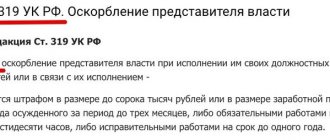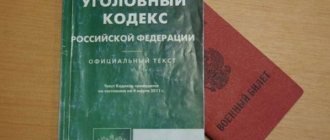Espionage is a criminal offense. Some individuals are not aware of what activities are considered espionage. I succumbed to provocation and almost gave away state secrets of a foreign state. I would not be able to avoid criminal penalties if this did happen.
In this article, on the basis of the relevant legislative act, I would like to tell you as a result of what actions individuals are considered spies. I will also explain what the punishment is for an offense of this kind. This warning information will help individuals avoid carrying out thoughtless illegal actions.
What is espionage?
Espionage is the transfer of information that affects the interests of a state to representatives of another state. The method of transmission, as well as the type of data, do not matter. These can be various documents, samples of materials, etc.
The spy collects data, stores it and transmits it. He uses a whole range of methods for illegal activities. A spy can be an intelligence officer of a foreign state or a Russian citizen recruited by the intelligence services of another country.
Espionage, according to the law, comes in several forms. Each of them has its own characteristics that are important for qualifying a crime.
Types of espionage
Russian criminal law distinguishes between the following types of espionage:
- A separate crime (qualified under Article 276 of the Criminal Code of the Russian Federation).
- Type of high treason (Article 275 of the Criminal Code of the Russian Federation).
- Industrial espionage affecting economic interests (Article 183 of the Criminal Code of the Russian Federation).
The distinction between espionage and treason is clearly defined. Under the article, foreign citizens and stateless persons are charged with espionage. Russian citizens are liable for the transfer of state secrets under the article on high treason.
The peculiarity of industrial espionage is that the attacker does not give away state secrets, but transmits information that can give another state an advantage in the economic sphere.
Industrial espionage is carried out by private and public sector organizations. But to qualify this crime, it is important to prove the fact of violation of the law. Otherwise, the receipt and transmission of economic information will be interpreted as competitive intelligence.
Article 275 of the Criminal Code of the Russian Federation
This norm of criminal law states that for the disclosure and transfer of state secrets to representatives of another country, the perpetrator faces imprisonment for a term of 10 to 20 years. The subject of this crime can only be a citizen of another state or a stateless person.
Espionage under Article 276 of the Criminal Code of the Russian Federation
Certain types of information may be military or state secrets. A strictly limited number of individuals have access to information of this kind. If they try to extract secret data from them, then this action is regarded as a crime. An individual who acted as a performer is automatically considered a spy. I would like to draw your attention to the fact that whether it was possible to find out the secret material or not does not matter.
Unsuccessful attempts are also automatically considered an offence. In addition, secret information can be recorded in written sources. If information is stolen from an individual, the thief will also be considered a spy. In the case of group work of several individuals aimed at transferring state secrets to other interested foreign states, the highest penalty is provided.
Article 276 of the Criminal Code of the Russian Federation interprets exactly what actions constitute espionage. In addition, this legislative act specifies the type of punishment that is applied to spies, as well as the duration of its validity.
What actions constitute espionage
In order to avoid disputes about whether a person is a spy, this concept was clearly identified in article number 276 of the Criminal Code. The legislative act states that the following actions are espionage:
- Transfer of secrets to foreign states. Individuals are automatically classified as spies, not only if they transferred a state-type secret to another country, but were also noticed collecting this secret information. The same applies to theft, as well as storage of data for subsequent transmission. In addition, liability is imposed on individuals who not only disclosed the secret to other countries, but also to various foreign companies, as well as international firms and their representatives.
- Espionage on assignment. It may also be that a certain individual receives an assignment from foreign intelligence to find out/collect and provide data that is a state secret. Such actions also constitute a crime related to espionage. This also includes the transfer of information, the use of which could ultimately violate the security of the Russian Federation. If the secret was discovered not on the instructions of a foreign intelligence service, but at the request of an individual acting in the interests of this organization, then the article on espionage is also relevant.
It should be noted that the nationality of the spy matters. If an individual has committed illegal actions under Article 276 of the Criminal Code of the Russian Federation and has foreign citizenship (or no citizenship at all), then he is considered a spy. In other words, a spy is an agent of another country who tries in every possible way to find out state secrets.
As a rule, the need for espionage arises in the event of conflicts between certain countries. Foreign agents operate in a covert manner, attempting to discover information about another country that will eventually be used against it.
Responsibility for espionage
If a certain individual was caught spying, and then his guilt was proven, then the imposition of criminal liability against him is inevitable. The types and duration of punishments are regulated by the same 276 legislative act.
There is only one type of punishment provided for liability - imprisonment. The convicted person is forcibly isolated from society. For some period, an individual will need to stay in a specialized institution (prison), which has its own special regime of stay.
There is no clear period for which criminals should be kept in custody. The article defines the minimum period of validity of this punishment, which is ten years. The upper limit during which a convicted person can be deprived of his liberty is also regulated. It is equal to twenty whole years.
The judge decides on the length of this period. The emphasis will be on the severity of the offense, the consequences that arose as a result of its commission, as well as the reputation of the offender. If an individual has previously been found engaged in espionage or has a conviction for some other offense, then a maximum period of imprisonment will be established. The same applies to cases where the convicted person did not act alone, but in a preliminary conspiracy with other spies.
Corpus delicti
The object of espionage under Article 275 of the Criminal Code of the Russian Federation is state security, and the subject is data that another state wants to receive.
The objective side of the act is expressed in the collection, processing, storage and transmission of secret data.
The subjective side lies in direct intent, since the criminal is aware of the consequences of his actions and desires their occurrence.
The subject is a citizen of another country or a stateless person who is sane and aware of his actions. The moment of data transmission is the time of the end of the crime.
Commentary on Article 276 of the Criminal Code of the Russian Federation
1. The object of the criminal attack is the external security of the Russian Federation (see paragraphs 1 - 2 comments to Article 275).
2. Subjects of criminal encroachment - information constituting state secrets and other information (see paragraph 5 of the commentary to Article 275).
3. Depending on the subject of the crime, espionage is divided into two types: a) the subject of which is information constituting a state secret; b) the subject of which is other information.
4. The objective side of espionage, the subject of which is information constituting a state secret, is expressed in the transfer or collection, theft or storage of this information for the purpose of transfer to the addressee.
5. The objective side of espionage, the subject of which is other information, is expressed in its transfer or collection on the instructions of foreign intelligence.
6. The recipients of espionage are a foreign state, a foreign organization or their representatives (see paragraphs 6 - 6.3 of the commentary to Article 275).
7. Transfer of information consists of performing any actions as a result of which this information is communicated to the addressee. It can be carried out orally or in writing, in person or through an intermediary, using hiding places, various technical means, etc.
8. Collection is any method of obtaining information, with the exception of abduction. This may be personal observation, eavesdropping, spying, photographing objects, using audio and video recordings, other technical means to obtain information, etc.
9. Theft is expressed either in the secret or open gratuitous seizure of information from the possession of legal entities or individuals against the will of the owners, or through their deception or extortion. In this form of espionage, information is seized not temporarily, but forever. There will be no theft if objects or documents containing information are seized in order to make copies of them and then return them to the place of storage or to the owner. What they did is classified as collecting information.
10. Storage means any method of storing information that ensures the safety and immutability of information. It can be carried out both in premises belonging to the perpetrator and in other places. The shelf life does not affect qualifications.
11. Espionage, the subject of which is information constituting a state secret, can be carried out both on the instructions of a foreign state, a foreign organization or their representatives, and on the initiative of the subject. The crime is completed (in its entirety) at the moment of transfer or collection, theft or storage of information for the purpose of transferring it to the addressee.
12. Espionage, the subject of which is other information, is carried out only on the instructions of foreign intelligence and reflects a crime completed (by composition) at the time of transfer or collection of this information. If other information is collected by a foreigner or stateless person on his own initiative, but for the purpose of subsequent transfer to the addressee, then the act should be qualified as preparation for espionage.
13. The subjective side of espionage is characterized by guilt in the form of direct intent, i.e. the person is aware of the socially dangerous nature of his actions and wants to commit them.
13.1. The collection, theft or storage of information constituting a state secret is carried out for the special purpose of transferring this information to a foreign state, foreign organization or their representatives. Performing the above actions without the purpose of transferring them to the recipient does not constitute espionage.
14. A special subject of espionage is a foreign citizen or stateless person, sane, and over 16 years of age. Citizens of the Russian Federation can also act as organizers, instigators and accomplices of espionage, provided there are no signs of treason in their actions (see commentary to Article 275).
15. Espionage is subject to note. to Art. 275, which provides for the conditions for exemption from the MA (see paragraph 14 of the commentary to Article 275).
16. Espionage is classified as a particularly serious crime.
Qualification of crimes
The differentiation of crimes related to the transfer of information is associated with the type of information. It can be in the public domain, as in the case of commercial espionage, or it can be a state secret. In this case, espionage is divided into two offenses, depending on the initiator of the collection and transmission of data:
- At the initiative of the perpetrator.
- On instructions from a foreign intelligence service.
In some cases, when there was no fact of data transfer, the act may be qualified as preparation for the commission of a crime.
Can innocence be proven?
One of the key principles of the modern legal system is the presumption of innocence. The task of investigative authorities is to prove a person’s involvement in a crime. Accordingly, until the necessary evidence is collected and guilt is proven, the suspect will not be held accountable.
However, the peculiarity of espionage is that it is very difficult to prove innocence in its commission. A criminal case regarding the transfer of data is initiated if there is verified information about such an act. In this case, a crime arises if the information was secret and it was transmitted. That is, it is quite easy to prove these facts.
For cooperation with the investigation, the perpetrator may have a reduced sentence, but it will not be possible to completely avoid it. The only opportunity to remain free in the event of espionage under Russian law is provided for persons who prevented a crime at their own request or promptly reported its preparation.
Have a question for a lawyer? Ask now, call and get a free consultation from leading lawyers in your city. We will answer your questions quickly and try to help with your specific case.
Telephone in Moscow and the Moscow region: +7
Phone in St. Petersburg and Leningrad region: +7
Free hotline throughout Russia: 8 (800) 301-39-20
Industrial espionage
The transfer of economic information is a fairly common crime. It can be done at the firm level and at the state level. If damage is caused to the company, the culprit may get off with a mild punishment - dismissal. Often, the damage turns out to be insignificant and the company’s management is not interested in disclosing information about what was done, so they do not contact law enforcement agencies and do not initiate a criminal case under Article 183 of the Criminal Code of the Russian Federation.
Industrial espionage: how to prove a violation and recover damages
Issues related to industrial espionage and the protection of know-how remain one of the key topics of the global legal community1. There is a worldwide trend towards increased liability for violations in this area. For example, in 2022, changes were made to the legislation of China and the Republic of Korea, according to which:
- the amount of compensation (punitive damages) collected by copyright holders has been increased, up to five times the amount of the violator’s profit (the copyright holder’s losses);
- personal liability of individuals for the theft and disclosure of classified information has been introduced;
- Procedural changes in evidence were adopted: partial shifting of the burden of proof to the offender, lowering the standard of proof for the plaintiff.
One striking example was the case involving the transfer of confidential information by Tesla employee Martin Tripp to third parties. In June 2022, the company sued a former employee for $167 million in damages. The stated amount was due to the expected decline in the price of Tesla shares after Tripp provided the press with information about the corporation. As noted in the statement of claim, Martin Tripp created software to hack Tesla's production operating system. He copied several gigabytes of information and transferred it to third parties. The hacker software was installed on three computers, and data from them could be transmitted even after Tripp was fired.
In Russian practice there are also examples of cases where the antimonopoly authority and the courts recognize actions in the form of theft and use of know-how as unfair competition. According to the results of a study conducted by Legal, the number of cases in this category has been steadily growing since 2008, and in 2022 there was a significant jump. Over the past 12 years, the largest number of cases concerned the consulting sector (business processes, data on clients and contractors), information technology and light industry.
The duration of consideration of such disputes depends on various factors: the complexity of the process, the activity of the parties, and the workload of the judges. As a rule, this period is a little more than a year, and the average amount of claims is about 41 million rubles. (in 45% of cases these are losses associated with violation of rights to know-how, and in 68% of trade secrets). It is noteworthy that most often the plaintiffs referred to the presence of lost profits (98%) and only in 2% of cases the claims related to actual damage.
In foreign practice, a number of patterns can also be identified. For example, in 2022, US courts dismissed claims in 11% of trade secret cases, citing the plaintiff's failure to take “reasonable steps” to protect the information. In particular, the courts pointed to the need to prove the adoption of actual organizational measures, the presence of appropriate marks on documents, facts of employee awareness of working with secret documents and the rules for their use.
Another problem concerns the partial disclosure of classified information during the proceedings. There are both positive decisions for the plaintiffs, when they cited only a description of know-how to substantiate the claims (see, for example, the case of Magnesita Refractories Co. v. Tianjin New Century Refractories Co.), and examples of court refusals to satisfy the claims, because plaintiffs provided only a list of information that was confidential (for example, the decision in Zoom Imaging Sols., Inc. v. Roe).
The Russian practice of collecting damages for industrial espionage is less developed than foreign practice, so there are many more problems, as evidenced by statistics. For comparison: US courts satisfy about 68% of claims2, while Russian courts satisfy only 14%. However, this is mitigated by the fact that if the claim is satisfied, domestic courts in almost 100% of cases recover damages in the declared amount. This circumstance suggests that the chances of winning are small, but still there.
Another aspect is that courts most often refuse to recover damages for reasons due not so much to industrial espionage, but to the fact of causing losses to the injured party. Thus, the absolute leader among the grounds for refusing to satisfy claims can be called “the absence of a cause-and-effect relationship between losses and the actions of the violator.”
In our opinion, the key problem lies precisely in the lack of uniform approaches to the recovery of damages caused by industrial espionage. It should also be noted that some of the cases are related to trade secrets, and therefore were considered in closed court sessions. The optimal solution to the problem, we believe, would be clarifications (generalization of judicial practice) from the Supreme Court of the Russian Federation or the Intellectual Rights Court. In fact, only they can analyze the entire array of disputes, including closed cases, summarize law enforcement approaches, anonymize judicial acts and present the results.
At the same time, it should be noted the positive dynamics already observed in Russian practice. Thus, recently the situation with the protection of copyright holders from industrial espionage has improved significantly. For example, in cases No. A09-11485/2018 and No. A71-23503/2018, the courts recovered damages from the violators in the form of lost profits for the sale of products in which the production secret was illegally used. Antimonopoly authorities make a significant contribution to the development of practice due to their attention to compensation for losses when considering cases of unfair competition, as well as the preparation of recommendations on methods for calculating such losses. Of course, these approaches are not unique, but the fundamental point is that they come from a government agency.
As a rule, the main channel for leaking secret information is company employees and contractors (former or current). More sophisticated violators take advantage of gaps in the regulation of intellectual property and trade secrets. For example, legislation allows for the independent and independent creation of identical know-how, and therefore some violators often resort to tricks that imitate independent development: local acts on supposedly “turbulent” activity, changes in the name or range of goods. Thus, in the court decisions in case No. A45-18610/2016, you can see that the offender adopted the style of product names: Vodnik - Aquarius, Taiga - Hunter, Optimist - Activist, Malysh - Tiny, Fisherman - Fisherman, etc.
Protection of violated rights to intellectual property is possible through demands to suppress such unlawful actions and recover damages from the violator. In both the first and second cases, the affected company will have to prove the very fact of the violation, which in 90% of cases requires an examination. This concerns not only the issue of using secret information, but also finding out how secret or publicly known it is.
Each such case is, of course, unique, but in addition to the expert opinion, there are some pieces of evidence that courts most often pay attention to. These include, in particular, local regulations and agreements that mediate work with intellectual property and trade secrets; clearly formulated regulations for working with information for employees, containing prohibitions on disclosing information constituting a trade secret or know-how; correspondence with counterparties, including on the Internet, availability of information security tools, materials of criminal cases, as well as cases related to violations of antimonopoly legislation, photographs of products, etc.
In addition, you should pay attention to such indirect signs of a violation as the pricing policy of the violator, the rapid receipt of certificates (permits), and a sharp decline in the financial performance of the injured legal entity.
Another important point is proving the violation. Thus, in order to submit a claim for recovery of damages, it is necessary to establish the entire composition of the violation: cause-and-effect relationship, illegality, amount of loss, presence of the offender’s fault. It is important that some of the elements may be identified in an “antitrust” or criminal case. In this case, it is imperative to appeal to the prejudice of the circumstances, if they have been established. To satisfy the requirement to suppress illegal actions, you should pay attention to the presence of such at the time of consideration of the demand: if the violation was of a one-time nature or was terminated at the time of resolution of the dispute, their satisfaction may be refused.
Thus, we recommend that lawyers practicing in the field of protecting intellectual property rights draw the attention of clients to the need for preventive measures to protect intellectual property and trade secrets. This is a determining factor - regardless of the jurisdiction of the dispute. If a company's work with intellectual property and trade secrets is not regulated, the likelihood that the claims will not be satisfied by the court is extremely high.
It is extremely important to begin recording violations with the involvement of professional legal assistance already at the moment signs of such a violation are identified - before the stage of demanding explanations, disclosing information and making the violation public. Self-protection measures should also be used. For example, in the IT industry, peculiar “tags” are often used to simplify the proof of a violation: a fake email address, typos or intentional errors in documentation that do not affect the final result, etc. If a violation has already occurred, you should remember the limitation periods. We also recommend that you contact the antimonopoly authority with a statement about unfair competition in the actions of the alleged violating competitor, which will allow you to gain time and collect additional evidence in the case.
1 They were discussed, in particular, at the conference “Best Antimonopoly Practices – 2020”, organized under the auspices of Forbes. “AG” acted as the information partner of the event.
2 See https://www.stout.com/en/insights/report/trends-in-trade-secret-litigation-report-2020?gclid=EAIaIQo…
When does responsibility come?
The crime of industrial espionage is considered completed when:
- The suspect collected relevant information. He can do this personally or with the help of other people and special equipment.
- He stored data that he had no right to store and that was not intended for public access.
- The criminal recruited people who had access to the data he needed.
- He planned to transfer or transferred this data to a third party.
Evidence of industrial espionage can be audio, video and photographic materials, as well as samples and diagrams found on this person.
Liability under Article 183 of the Criminal Code of the Russian Federation
Industrial espionage in criminal law is interpreted as the disclosure of confidential information. The punishment for this is:
- In the form of a fine in the amount of 500 thousand rubles or income for a year, if the fact of theft of information is proven.
- A fine of 1 million rubles and a ban on holding certain positions for up to 3 years, as well as correctional labor for up to 2 years, forced labor or imprisonment for up to 3 years. Such sanctions are provided for the transfer and use of collected information.
- A fine of up to 1.5 million rubles and a ban on holding positions for 5 years, as well as imprisonment for the same period. This is a punishment for industrial espionage that resulted in large-scale damage.
The maximum punishment for this crime is forced labor for up to 5 years and imprisonment for 7 years.
Persons recognized as legally incompetent, as well as in the absence of evidence or corpus delicti, can avoid liability.
Features of qualifying for spy status
Since espionage becomes especially relevant during military conflicts between states, the international legal system clearly defines when a person who has stolen classified information can be considered a spy. This is allowed if the offender is a civilian or serves in the armed forces, but acts on enemy territory without a military uniform, then he can be prosecuted and will not receive the status of a prisoner of war.
Otherwise, when he performs his tasks in military uniform, even if the fact of espionage is proven, he is recognized as a prisoner of war. It is important to note that this person is obliged to fully comply with the rules of wearing a military uniform. In case of violations (using the uniform only in some situations), he may be recognized as a spy and not a prisoner of war.
Since only citizens of the Russian Federation can be convicted of high treason under Article 275 of the Criminal Code of the Russian Federation, and only foreign citizens under Article 276 of the Criminal Code of the Russian Federation, the question arises of bringing holders of dual citizenship to justice. Russian law prohibits double punishment, so such persons will be prosecuted under one of these articles.
Espionage as a branch of law
International humanitarian law outlines situations in which individuals do not have the right to be included as prisoners of war. An individual who is part of the armed forces of a certain side and at the same time is engaged in espionage, if captured by the enemy, is not considered a prisoner of war. At the same time, the second conflicting party, which took the spy into its power, has every right to demand the imposition of criminal liability on him.
Also, international law identifies situations in which intelligence officers are not classified as spies. If a scout is engaged in collecting secret information on the territory of the enemy, but is dressed in the uniform of the armed forces of which he is a member, then he is not classified as a spy. If such a scout is captured, he is automatically assigned the status of prisoner of war.
It should be noted that there are certain rules for wearing military uniforms. If a scout follows them partially, then later he may be classified as a spy.






